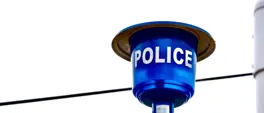GNU shakes up SA's political landscape, forces changes to way Parliament operates
Lindsay Dentlinger
23 December 2024 | 7:08The new composition of government has unwittingly led to a situation that many hope will improve parliamentary oversight.
CAPE TOWN - After 30 years of a parliamentary majority, the African National Congress (ANC)'s poor electoral showing in May has not only fundamentally changed the country’s political landscape but also the way in which the legislature operates.
For the first time in the country's history, it's no longer the ANC that's in charge of chairing portfolio committees, often referred to as Parliament's engine room.
The new composition of government has unwittingly led to a situation that many hope will improve parliamentary oversight.
From the seating arrangements to the terminology and the rules, the formation of a Government of National Unity (GNU) has necessitated several changes to the way in which Parliament operates.
The ANC and the DA have had to split the chairships of portfolio committees and co-chair the joint standing committees of both houses.
The Council for the Advancement of the South African Constitution (CASAC) executive director, Lawson Naidoo, said it's a welcomed change.
"This is in consonant with the submission that CASAC had made to the Zondo Commission and one of its recommendations was that Parliament should give consideration to the committees being chaired by other parties to enhance the quality of oversight that Parliament is able to exercise."
Six months on, Naidoo said it was still too soon to note the impact this was having.
"Of course, it will take some time for that to settle and for Parliament to also begin to develop a different set of conventions to deal with the political realities of the day."
However, parties remain at loggerheads over the establishment of a committee to oversee the presidency, a matter that's likely to cause tension between GNU parties in the new year.
Get the whole picture 💡
Take a look at the topic timeline for all related articles.
















